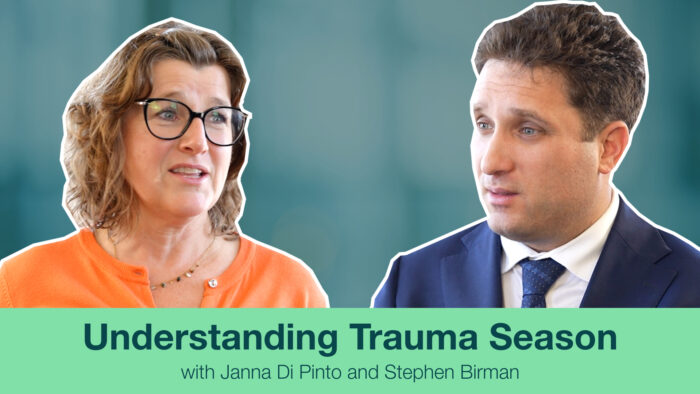Mandatory Car Accident Benefits To Be Reduced Once Again
Author(s): Stephen M. Birman*
March 27, 2024

The Ontario government outlined proposed auto reforms in its March 26, 2024 budget announcement. Three proposed changes are highlighted below, as well as one expected change that was noticeably absent:
Proposed Reforms:
- Limitation of mandatory accident benefits to medical, rehabilitation and attendant care benefits, meaning the removal of a mandatory income replacement benefit (“IRB”) and potentially other benefits from the statutory accident benefits schedule (“SABs”);
- Adjustment to the priority of benefits whereby accident benefits must be accessed before extended health care benefits; and,
- Review of the Attendant Care Hourly Rate Guideline with an expected increase in hourly rates for personal care workers.
Noticeably Absent:
A return of the catastrophic impairment benefit (“CAT”) limits to $2,000,000 for the most seriously injured car accident victims.
The removal of the mandatory IRB and other mandatory benefits from the SABs will be extremely harmful to accident victims if passed into law.
The second and third proposed reforms are constructive recommendations that should provide some help to accident victims and healthcare providers.
Noticeably absent, despite being promised by the government since 2019, is a return to CAT level benefits of $2,000,000 for medical/rehabilitation and attendant care for the most seriously injured car accident victims.
These items are discussed further below.
1. Limitation of mandatory benefits to medical, rehabilitation and attendant care benefits
Most significantly (and unfortunately for accident victims), the government has proposed that only medical, rehabilitation and attendant care accident benefits will remain mandatory under the SABs.
This means that the weekly IRB (as well as the non-earner benefit and caregiving benefit, where available), which is intended to replace lost income for victims, will no longer be part of the standard auto policy. It also may indicate that other benefits with respect to expenses for visitors, educational expenses and death and funeral expenses will no longer be mandatory.
The government announcement suggests the proposed change will help ensure that drivers can make “informed decisions.” The announcement suggests that drivers can purchase optional benefits to replace the lost coverages.
However, the SABs has always been designed to provide a minimum level of benefits to protect those in need of support after an accident. This is why medical, rehabilitation and attendant care benefits will continue to be mandatory. A serious car accident can leave an employed person unable to work or with lifelong vocational challenges. The modest IRB provides some support for victims who do not have access to benefits to replace their income. There is no compelling reason to remove this essential benefit from mandatory coverage.
In fact, the modest weekly benefit of $400/week should have been increased significantly to adjust for inflation, as it has remained at $400/week since 1996. With inflation, that weekly benefit should be over $700/week in 2024 dollars.
If these unfortunate changes come to pass, Ontario drivers will need to be fully apprised by their insurance brokers of the options available. At a minimum, this writer suggests that any limitation on these standard benefits should be pursuant to an opt-out system whereby drivers continue to receive the standard coverages unless they expressly opt out with full awareness of what they are potentially giving up.
2. Adjustment to the priority of benefits whereby SABs must be accessed before extended health care benefits
The government will be proposing to make auto insurance pay for medical and rehabilitation benefits following an auto accident before extended health care plans do.
The proposed change would see auto insurance companies pay for health care costs in priority to extended health care plans.
Subject to auto insurers quickly approving coverage, this is a reasoned proposal as it will reduce the interplay between extended health and auto insurance benefits that often results in delay and red tape for victims and their health care providers.
3. Review of the Attendant Care Hourly Rate Guideline
The government is requesting that the Financial Services Regulatory Authority of Ontario (FSRA) review the Professional Services Guideline and the Attendant Care Hourly Rate Guideline (the “Guideline”) and consider updating these guidelines based on their findings.
The Guideline sets out the maximum hourly rate to calculate monthly attendant care benefits under the SABS. The hourly rates set out in the Guideline are as low as $14.00/hour. The rates are below minimum wage, making it virtually impossible for accident victims to hire personal support workers. The Guideline has been completely unrealistic for some time and needs adjustment to reflect actual market rates.
4. What is Unfortunately Missing – a return to the previous CAT limits of $2,000,000.00
Once again, noticeably absent from the announcement is the long-expected return of benefits for catastrophically impaired accident victims to $2,000,000.
CAT benefits were reduced to $1,000,000 in September of 2016. Since that time, those most seriously injured in car accidents and suffering from severe disability and conditions like quadriplegia or severe brain injuries have been left with grossly insufficient coverage for their rehabilitation.
Way back in its 2019 budget announcement, the government proposed a return to the default benefit limits of $2,000,000 for catastrophic victims. Five years later, that proposal has not been implemented and continues to go unaddressed.
Conclusion
While there are some modest proposed changes to the auto system in the right direction, what is most glaring is that the government has once again proposed to take the mandatory accident benefits scheme backwards by removing benefits that car accident victims rely upon.
Share this






